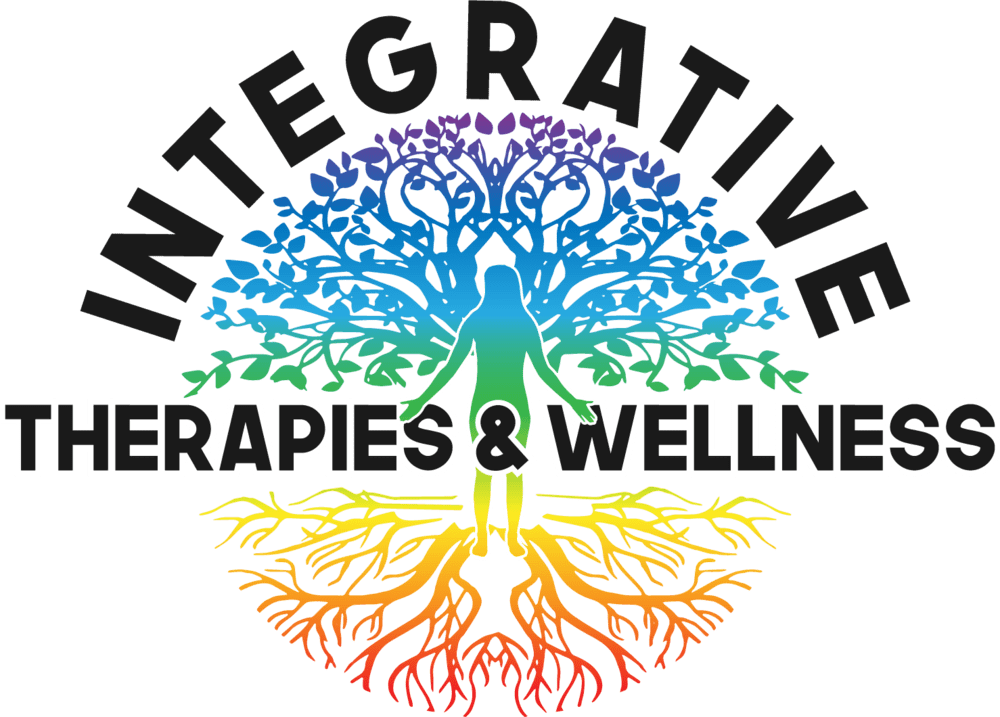Contents
What Is Integrative Therapy?
 Integrative therapy is a form of therapy that differs from traditional or conventional forms. Integrative therapists aim to heal the whole person. This is done by combining various therapeutic approaches. These are on the basis of their assessment of an individual’s mental, physical, and spiritual needs.
Integrative therapy is a form of therapy that differs from traditional or conventional forms. Integrative therapists aim to heal the whole person. This is done by combining various therapeutic approaches. These are on the basis of their assessment of an individual’s mental, physical, and spiritual needs.
Therapists can use this approach in the place of more mainstream methods. This is because they broaden treatment options for patients with complex conditions who can’t find relief through more standard treatments.
Integrative therapies are also used with mainstream options. This is to help patients address the underlying causes of their symptoms. This allows them to get better faster and stay well longer. Integrative therapists can be psychiatrists or psychologists. They might practice psychotherapy (talk therapy) alone. They can also use a combination of talk-based approaches. For example, cognitive-behavioral therapy (CBT), interpersonal therapy (IPT), dialectical behavior therapy (DBT). Some others are mindfulness meditation, acupuncture, herbal medicine, biofeedback techniques, yoga or tai chi exercises, hypnotherapy, music, or art therapies.
Types of Therapies In Integrative Therapy
These are some types of therapies that can be used in the Integrative Therapy approach:
Cognitive Behavioral Therapy (CBT)
This therapy approach can help patients to change the way they think and behave.
Dialectical Behavior Therapy (DBT)
This therapy helps people with borderline personality disorder, depression, eating disorders, and other conditions. These involve intense emotional distress caused by difficult life experiences or a tendency toward self-destructive thoughts or behavior. DBT uses mindfulness meditation, cognitive-behavioral techniques, and acceptance strategies. It is to improve coping skills for anxiety-related issues. These are like panic attacks trigger responses; phobias, or posttraumatic stress disorder (PTSD).
Hypnotherapy
Hypnosis can produce changes at different levels of awareness. These are including changing habits, behaviors, and thought patterns as well as improving health and wellbeing. Relaxing the conscious mind while keeping an open pathway to the subconscious is essential in order for hypnosis to work effectively.
Music Therapy
This therapy uses various types of music including singing or playing instruments. This is a way to improve self-esteem, focus attention, reduce stress and tension. This therapy can also help to manage behavior problems like ADHD. It can also support responses to medical treatment like chemotherapy and radiation therapies. This makes coping with pain management during childbirth or other procedures very easy. The coping up can be from dental surgery or wound care.
Yoga & Tai Chi
Yoga can help you relax physically by stretching muscles and joints thoroughfares that move through the body. It can also help reduce stress by encouraging you to focus on your breathing and distracting you from everyday problems. These are the problems that cause anxiety or stress.
Tai Chi helps increase flexibility, balance, coordination. It is especially good for people with arthritis pain. This is because it works both small muscles around joints as well as large muscle groups in the upper and lower limbs. Tai chi teaches movement patterns through a slow-motion process. This improves concentration along with better posture control. It is while strengthening deep core abdominal musculature important for back support.
Techniques In Integrative Therapy
These are some of the techniques in Integrative Therapy:
Behavioral Strategies
Behavioral strategies are used to help patients positively change the way they think and act. The goal is for these changes in behavior to eventually become habits that can be done automatically without thinking about them first.
Biofeedback Techniques
These techniques allow you to increase body awareness by making subtle changes in your physical responses. Biofeedback uses sensors attached to your skin, muscles, or brain waves (electroencephalography). These will send information through a computer monitor so it can be seen changing levels of stress. It then allows you to learn how to control those readings with relaxation exercises. These are like deep breathing, muscle tensing/relaxing, meditation, yoga poses, or self-hypnosis sessions.
Emotional Freedom Technique (EFT) & Tapping
The Emotional Freedom Technique involves tapping certain meridian points on your head, chest, and hands. This is while you focus on an issue that you want to be resolved. The same technique is also called “tapping” because of how it uses finger tapping motions during treatment sessions. These tappings are instead of needles for acupuncture sessions. This type of medicine has been used for centuries in Eastern practices, but it is only recently that this process has become more mainstreamed into Western medicine.
Psychodynamic Strategies
Psychodynamic strategies use a patient’s subconscious mind to address problems that may be holding them back from reaching their full potential. These therapeutic techniques help you gain insight into negative emotions and behaviors.
Is Integrative Therapy Effective?
This type of therapy is effective in helping patients understand and resolve issues that prevent them from moving forward.
According to a study, at least 50% of patients who receive integrative therapy for anxiety or depression experience a reduction in symptoms.
Integrative Therapy is an effective way to help people with mental disorders. These are the disorders that you cannot treat with one therapy alone. It uses the best techniques from different treatments, then combines them together into one complementary treatment plan where each technique works synergistically with other methods to provide even better results than they would alone. Integrative Therapy has been shown to work well when treating insomnia, reducing stress and pain management as well as improving overall wellbeing—all without using potentially dangerous drugs like opioids which are commonly prescribed today but have serious side effects including addiction and death if taken improperly.
Patients often feel overwhelmed first because there are so many types of therapies to choose from—and second because no one wants to go through the arduous process of trying out all of them without seeing results.
Benefits of Integrative Therapy
Integrative therapy provides multiple modes of treatment to achieve the best results possible. Integrative therapy often works better than traditional therapies alone. This is because it addresses each of these levels in your body, mind, and spirit. It increases areas for healing that can be because of stress or any other traumatic events from your childhood or adulthood.
These are some of the benefits of Integrative Therapy :
Improves Self-Esteem
This therapy improves self-esteem by helping to address problems in daily life that are causing anxiety or stress. Integrative therapy can reduce depression, chronic pain, and insomnia. These all are in relation to low levels of self-esteem.
Reduces Stress & Tension
This type of treatment reduces stress and tension because it encourages the patient to focus on their breathing while thinking about positive affirmations related to whatever issue they may have to go on internally. Deep breathing exercises combined with other relaxation techniques like meditation, yoga poses, or guided imagery can help you feel more relaxed after each session.
Manages Behavior Problems
These strategies for behavior management include working through different types of therapies like art therapy (playing instruments), music therapy (listening to music), and art therapy (painting pictures). Integrative therapies may help children with ADHD by giving them a safe space where they can express themselves in ways that are creative, fun, and non-judgmental.
Improves Personal Relationships
This type of treatment improves personal relationships because it helps you connect better emotionally with others around you whether this is through your partner or family members. This increases the overall feeling of love which will have a positive impact on all aspects of your life moving forward.
Helps In Addiction Recovery
This treatment helps in addiction recovery because it encourages you to address trauma or negative emotions that may have been the cause of your substance abuse. Integrative therapy often addresses physical, mental, and emotional factors which can restore a sense of balance as well as improve your overall outlook on life moving forward.
Reduces Pain
Integrative therapies reduce pain by making changes to how you perceive those around you who are being supportive during this time—and giving them credit where credit is due for taking care of themselves so they can take good care of you when times get tough. This reduces feelings like shame, guilt, anger, resentment, etc., allowing individuals to think more clearly about their options moving forward without feeling trapped or helpless.
Improves Overall Health & Well-Being
Integrative therapy improves overall health and well-being because it helps people connect with themselves and their own emotions without feeling intimidated or overwhelmed while giving them a safe space to express what they are going through both physically and emotionally at any given moment during treatment sessions. This type of process allows individuals to let go of whatever is holding them back from living life fully moving forward so they can get back to experience all the good things life has to offer.
Side-Effects of Integrative Therapy
These are some of the side-effects of Integrative Therapy:
- Sometimes, this therapy can cause the patient to feel more emotionally sensitive, which can be overwhelming at times.
- This type of therapy is not for everyone. Therapists should use this type only if you are ready to work through difficult issues without feeling like it’s an impossible task or burden on your shoulders.
- You may notice that this treatment helps with insomnia by reducing anxiety and fear but sometimes causes nightmares as a result—which means you will need to find other ways how to fall asleep moving forward after each session unless this continues into long-term dreams instead of just short-term ones during sleep paralysis as a side effect from integrative therapies which rewire some brain pathways.
- This therapy may cause some people to feel more overwhelmed or anxious at times during each session, but this is a normal part of the process and should not be considered a negative side-effect unless it lasts for more than just a few days.
Conclusion
Integrative therapy, or the integration of different therapies such as psychotherapy and medication to treat mental health problems, is becoming more popular. There are many benefits of this form of treatment, but it does require a lot of time and patience which can be difficult for some people. If you’re looking for help with your mental illness or addiction struggle without having to commit full-time to an inpatient program then integrative therapy may be right for you!
Integrative therapy can be helpful for many different types of people. It is important to find a therapist who has the right background and experience with your needs so that you get the most out of this type of treatment.
If you are looking for affordable Online Counseling MantraCare can help: Book a trial therapy session


